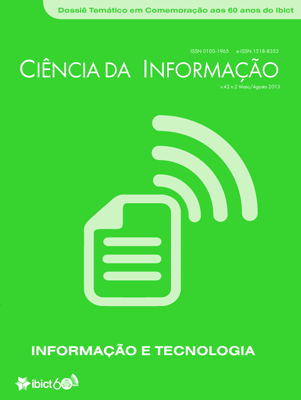Beyond Information Ethics - Knowledge and Care as new Values in Design
DOI:
https://doi.org/10.18225/ci.inf.v42i2.1381Palabras clave:
Information Ethics, Knowledge Systems, System DesignResumen
With computer and information technology (ICT) coming to play a greater and more pervasive role in the lives of people around the world, it becomes important to consider the ways in which values and ethical beliefs are embedded in the technology that we use. Software, in particular, with its ability to both act independent from its creation and be reproduced, shared, and transmitted almost infinitely, opens many new ethical questions both in the implications of its immediate use, as well as any future use and the new contexts that such future use can bring. While Floridi’s Information Ethics presents a well developed, general means by which our interactions with ICT (from design to use) may be ethically guided, it provides no specific, proactive guidance for the creative process of design. When confronted with the need for a particular ICT system, or when faced with the opportunity for open-ended innovation, software and systems designers are left on their own to ask what kind of system should be built. Critiquing relevant ethical approaches, a knowledgeoriented ethics of care is presented that addresses the ethical questions of software design, while still allowing for the application of the variety of different ethical approaches necessary for dealing with the high level of complexity involved in building information communication networks. By acknowledging the complex networks of relationships that are engaged in the use and design of information communication technology, a substantial knowledge of the values and ethical positions embedded in technology proves to be necessary if one hopes to be able to properly practice a carebased ethics in the process of technology design.Descargas
Los datos de descarga aún no están disponibles.
Descargas
Publicado
06/08/2015
Número
Sección
Artículos
Licencia
- La publicación se reserva el direcho de realizar, en los originales, cambios de orden normativa, ortográfica y gramatical, para mantener la norma culta del idioma, respetando el estilo de los autores;
- Las pruebas finales no seran enviadas a los autores;
- Los trabajos publicados pasan a ser propriedad de la revista Ciência da Informação, siendo su reimpresión total o parcial, sujeta a autorización expresa de la dirección del IBICT;
- Debe ser consignada la fuente de publicação original;
- Són de exclusiva responsabilidad de los autores las opiniones emitidas en sus artículos;
- Cada autor recibirá dos ejemplares de la revista, caso esté disponible en el formato impreso.




























